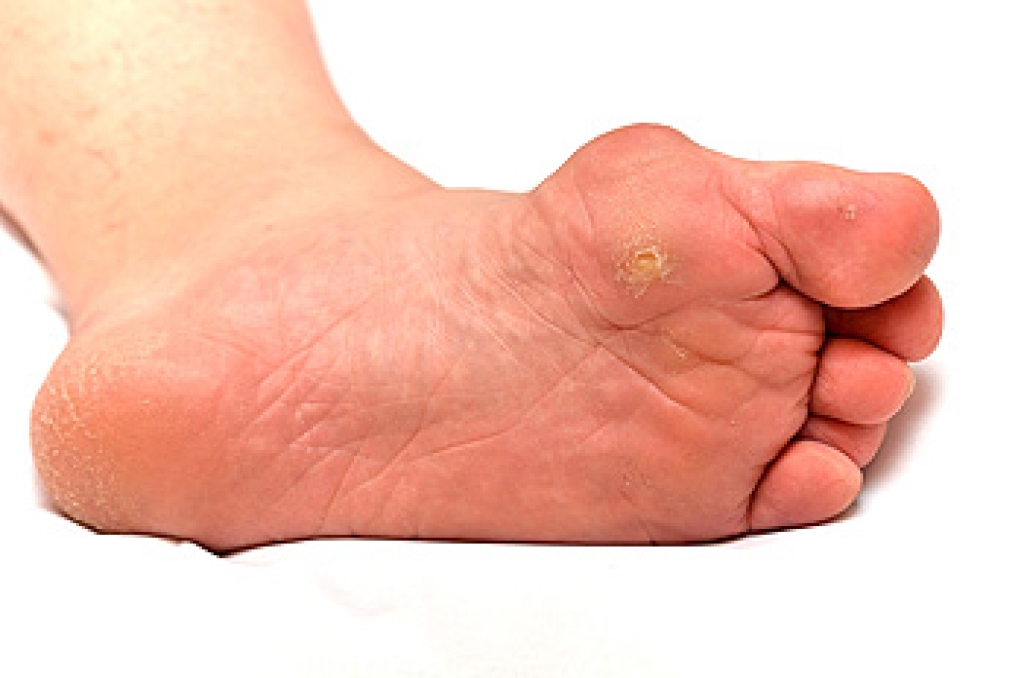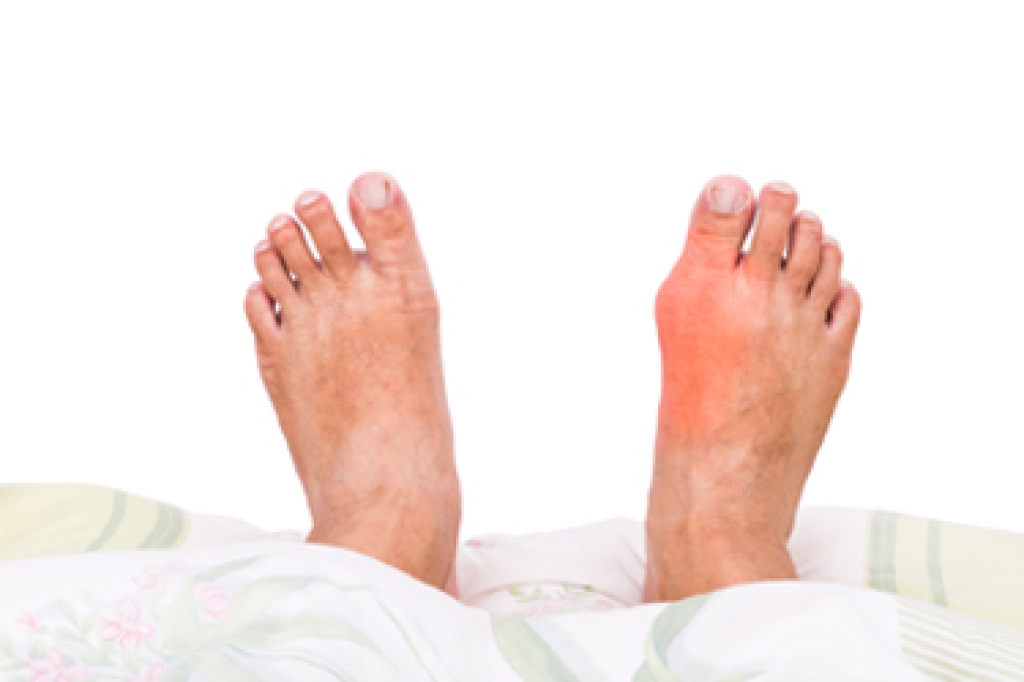 If you notice a bony protrusion at the base of your big toe, you may have a bunion. A bunion is considered to be a bone deformity and may develop for specific reasons. These reasons can include certain genetic factors. The disorder causes the big toe to move toward the toe next to it, and the joint will gradually extend outward. There are additional reasons why bunions may form, which can include forms of arthritis, low arches, or foot injuries. The symptoms that are often associated with this condition are pain and discomfort on and near the affected area, swelling, numbness, and a burning sensation. Mild relief may be found when proper shoes are worn and when ceasing any activity that causes pain. If you have a bunion, it is suggested that you seek the counsel of a podiatrist who can treat this condition.
If you notice a bony protrusion at the base of your big toe, you may have a bunion. A bunion is considered to be a bone deformity and may develop for specific reasons. These reasons can include certain genetic factors. The disorder causes the big toe to move toward the toe next to it, and the joint will gradually extend outward. There are additional reasons why bunions may form, which can include forms of arthritis, low arches, or foot injuries. The symptoms that are often associated with this condition are pain and discomfort on and near the affected area, swelling, numbness, and a burning sensation. Mild relief may be found when proper shoes are worn and when ceasing any activity that causes pain. If you have a bunion, it is suggested that you seek the counsel of a podiatrist who can treat this condition.
If you are suffering from bunions, contact one of our podiatrists of APEX Foot & Ankle Center. Our doctors can provide the care you need to keep you pain-free and on your feet.
What Is a Bunion?
A bunion is formed of swollen tissue or an enlargement of boney growth, usually located at the base joint of the toe that connects to the foot. The swelling occurs due to the bones in the big toe shifting inward, which impacts the other toes of the foot. This causes the area around the base of the big toe to become inflamed and painful.
Why Do Bunions Form?
Genetics – Susceptibility to bunions are often hereditary
Stress on the feet – Poorly fitted and uncomfortable footwear that places stress on feet, such as heels, can worsen existing bunions
How Are Bunions Diagnosed?
Doctors often perform two tests – blood tests and x-rays – when trying to diagnose bunions, especially in the early stages of development. Blood tests help determine if the foot pain is being caused by something else, such as arthritis, while x-rays provide a clear picture of your bone structure to your doctor.
How Are Bunions Treated?
- Refrain from wearing heels or similar shoes that cause discomfort
- Select wider shoes that can provide more comfort and reduce pain
- Anti-inflammatory and pain management drugs
- Orthotics or foot inserts
- Surgery
If you have any questions, please feel free to contact our offices located in Fort Myers, Shellpoint, and Naples, FL . We offer the newest diagnostic and treatment technologies for all your foot care needs.




